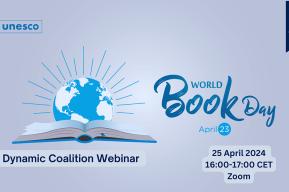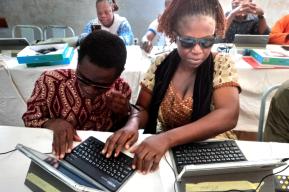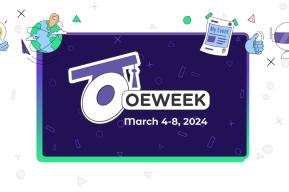Article
Transforming Education Pre-Summit: Open Educational Resources through the work of OER Dynamic Coalition highlighted

The OER Dynamic Coalition contributed to the Transforming Education Pre-Summit held in Paris from 28 to 30 June 2022 in three side events:
- Media and Information Literacy and Digital Competencies: Networks, Tools, Empowerment for Learning Transformation;
- Towards a Coalition for Action on Digital Public Resources for Education; and
- the side event on Transforming Education for Sustainable Development with Findable, Accessible, Interoperable, Re-usable (FAIR) OER Repositories (OEERs), Digital Innovation, and Diamond Partnerships.
The contribution of the OER Dynamic Coalition to the Pre-TES demonstrated how OER fits perfectly with the Digital Learning and Transformation Action Track 4 by highlighting the contribution of OER to making education more inclusive, equitable, efficient and sustainable.
The side events where the OER Dynamic Coalition was highlighted focussed on topics ranging from digital capacity building on open content through networks, tools, to scaling up of OER for educational transformation, to the need for free and high-quality digital learning resources; to digital innovation and diamond partnerships around FAIR OERRs. The single common denominator of all these sessions was a focus on open digital content- namely OER.
The digital revolution must inspire us to move in a new direction where digital technology provides affordable access to higher education, access to hard-to-reach groups, lifelong learning and continuous citizenship education that helps build peace.
The main solutions advocated in the discussions was to expand and accelerate access to high quality educational content that were accessible, multilingual, adaptable to a variety of contexts, as well as available through reinforced digital platforms. These issues are in the essence of the five action areas of the OER Recommendation – capacity building; policy support; inclusive, multilingual quality issues; sustainability and international collaboration.
Throughout the discussions in these side event, the progress made to date, including the work of the UNESCO OER Dynamic Coalition was highlighted. In this regard, Creative Commons, through its Director of Open Knowledge, Cable Green, underscored that several initiatives combining normative work on open content, the creation of stakeholder coalitions and the establishment of OER platforms already exist at UNESCO through the implementation of the OER Recommendation .
The OER Dynamic Coalition materializes and strengthens international cooperation, promoting information sharing and collaboration between stakeholders at governmental, institutional and civil society levels.
The ICT CFT Expert Network is a community of practice built around the UNESCO OER Hub to help countries exchange information with each other and to support Member states implementing the OER Recommendation and contextualising the ICT CFT which are both fundamental UNESCO tools
Recommendations and outcomes of the three side events include:
- Consensus that OER are digital public goods and should therefore be the drivers in the knowledge sharing game.
- Commitment to transforming education through the massification of OER through digital means will enable the full benefits of lifelong learning.
- It is important to remember that it is not necessary to reinvent the wheel but rather to build on the state of the art. In this regard, the OER Recommendation, the OER Dynamic Coalition and the ICT CFT OER online platform are valuable tools and networks precursors to open content.
These three events delivered a strong message for the Transforming Education Summit: open content are digital public good and UNESCO, a forerunner and pioneer in this field through the OER Recommendation, the only UN Normative instrument in the area of open content.
Background
The OER Dynamic Coalition was established further to the adoption of the UNESCO OER Recommendation by Member States at the 40th Session of the UNESCO General Conference in November 2019. The objective of the Dynamic Coalition is to support governments in implementing the OER Recommendation by promoting and reinforcing international and regional cooperation among all stakeholders in the first four areas of the UNESCO OER Recommendation.
The UNESCO ICT Competency Framework for Teachers (ICT-CFT) OER Network was created in 2013 to support Member States' efforts in ICT teacher training by contextualizing the ICT Competency Framework. It aims to support the realisation of national objectives related to ICT in education, develop teacher training materials based on OER, and implement teacher training exercises based on these materials.









